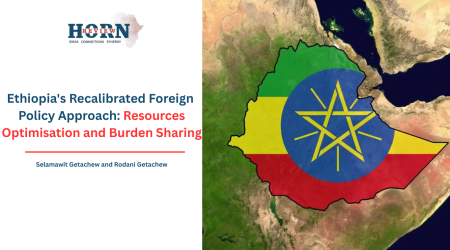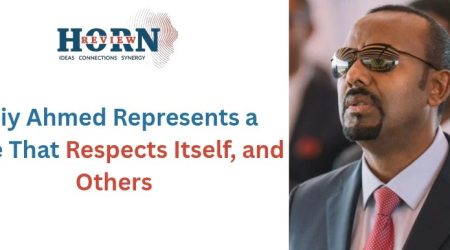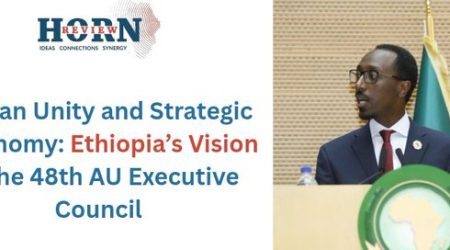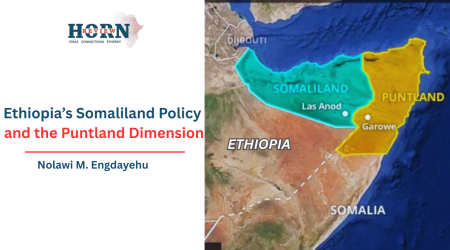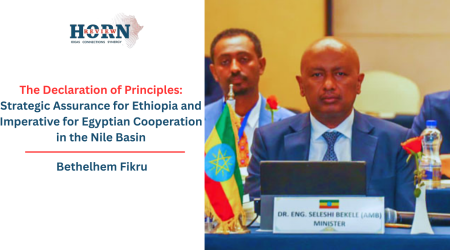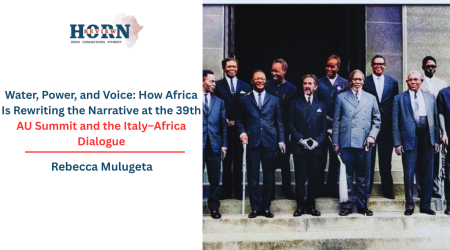
12
Nov
Anchor or Hegemon? Rethinking Ethiopia’s Regional Identity
The debate over Ethiopia’s regional role oscillates between two central ideas: hegemony and anchor statehood. Both have circulated for decades in the language of international relations and foreign policy, yet neither has been meaningfully adapted to the realities of the Horn of Africa. The confusion lies less in terminology than in conceptual framing. It arises from uncertainty about what kind of regional power Ethiopia represents, and how its influence should be situated within the unique political landscape of the region.
Opponents of Ethiopia’s influence often invoke the notion of hegemony to portray its foreign policy as coercive or self-interested. This framing seeks to reduce Ethiopian leadership to a pursuit of control rather than an effort toward stability. Within Ethiopia itself, certain realist perspectives also embrace the hegemon label as an inevitable reflection of capability and necessity. Both interpretations mischaracterize the nature of Ethiopia’s regional conduct. They overlook its stabilizing, integrative, and pragmatic potential in regional affairs—an approach that ultimately will aid in the preservation of order in an area marked by volatility.
The distinction between hegemony and leadership rests on the purpose and legitimacy of power. As Sandra Destradi observes, hegemony serves the pursuit of self-defined objectives, whereas leadership derives authority from consent and shared goals. Ethiopia’s external engagement should in principle align more closely with the latter. Its diplomatic and security initiatives have at times reflected an effort to build regional order, even when pursued through the logic of national interest. The essential question is how Ethiopian power can be exercised in a way that reinforces stability across the Horn.
The confusion surrounding Ethiopia’s role also stems from the historical evolution of the term “anchor state.” The concept originated not in Africa but in U.S. strategic discourse during the Cold War and the post–Cold War period, when Washington sought reliable regional allies to advance its geopolitical agenda. These states were expected to uphold local order while remaining aligned with broader Western objectives. Ethiopia, at various points, was included within this framework, particularly during the years following 1991, when American policy relied on select African partners to manage security concerns linked to terrorism and state failure.
This association carried significant implications. The American model reduced regional leadership to a function of external delegation, subordinating local agency to global strategic imperatives. In much of the Global South, the term “anchor state” therefore came to denote compliance rather than sovereignty. For Ethiopia, reclaiming the concept requires a deliberate redefinition situated in its own historical experience and regional context. It must describe a state whose strength, institutional coherence, and political legitimacy allow it to act as a stabilizing centre of gravity in the Horn—independent of external tutelage and free from hegemonic ambition.
Ethiopia already demonstrates the principal attributes of such a state. Its demographic scale and social composition mirror the diversity of the Horn, giving it a representational quality that enables mediation across cultural, religious, and political divides. Its state institutions, grounded in historical continuity and administrative tradition, provide a degree of governance stability rare in the region. Compared to neighbours still contending with incomplete state formation, Ethiopia’s political system remains comparatively resilient, sustained by institutional memory and an enduring conception of sovereignty.
Ethiopia’s military capacity has likewise reinforced its regional position. The Ethiopian National Defence Forces (ENDF) is among Africa’s most experienced and professional armies. Its historical purpose has been defensive, directed toward safeguarding sovereignty and preserving territorial integrity.
Economically, Ethiopia continues to serve as the Horn’s largest and most interconnected economy. Despite structural constraints and periods of turbulence, its growth trajectory has reshaped the region’s economic geography. Expanding transport corridors, power interconnections, and digital networks reflect a long-term vision of shared prosperity. Such projects, particularly in energy and infrastructure, signal Ethiopia’s intention to transform economic interdependence into a foundation for regional stability.
Yet the realization of anchor statehood faces two enduring challenges. The first concerns perception. Many governments in the Horn still interpret Ethiopia’s power through a defensive or competitive lens, influenced by historical grievances and fears of subordination. Deep-seated mistrust among regional actors limits the scope for cooperation and undermines collective initiatives. The second challenge is strategic ambivalence within Ethiopia itself. Successive administrations have recognized the country’s centrality but have hesitated to pursue sustained regional leadership, constrained by domestic priorities and a misguided foreign policy outlook, which saw neighbours as limited partners or threats to security.
Advancing beyond these constraints requires a coherent articulation of Ethiopia’s regional vision. Anchor statehood must be expressed through policy and practice that integrate national and regional objectives, demonstrating that security and development across the Horn are interdependent. Ethiopia’s leadership will gain credibility not through assertion but through consistent commitment to collective stability. A forward-looking foreign policy—grounded in pragmatic cooperation, diplomatic engagement, and mutual benefit—offers the clearest path toward this goal.
The changing global environment reinforces this imperative. As international institutions weaken and global power competition intensifies, regional powers are assuming greater responsibility for maintaining local order. For the Horn of Africa, external reliance is increasingly unsustainable. Stability will depend on capable regional states willing to shoulder this responsibility, and Ethiopia remains uniquely positioned to do so. Its historical continuity, geographic centrality, and institutional strength provide the necessary foundation for a leadership role that is both legitimate and constructive.
Ethiopia already functions in practice as an anchor state. Its population embodies the diversity of the Horn, its institutions provide governance continuity, and its economy and military capacity form the region’s most reliable base of stability. The task ahead lies in consolidating this position through strategic clarity and regional trust-building. The perception of Ethiopia as a coercive actor must be replaced with an understanding of it as a stabilizing centre—one capable of guiding the Horn toward integration and durable peace.
The redefinition of anchor statehood within the Horn of Africa thus represents a strategic necessity rather than a conceptual refinement. Ethiopia’s historical depth, institutional maturity, and regional centrality together establish the basis for leadership that serves both national and collective interests. As global structures fragment, regional resilience will depend increasingly on states capable of anchoring order. Ethiopia’s role in shaping that future will be decisive, not as a hegemon, but as the principal architect of regional stability and cooperation.
By Mahder Nesibu, Researcher, Horn Review

